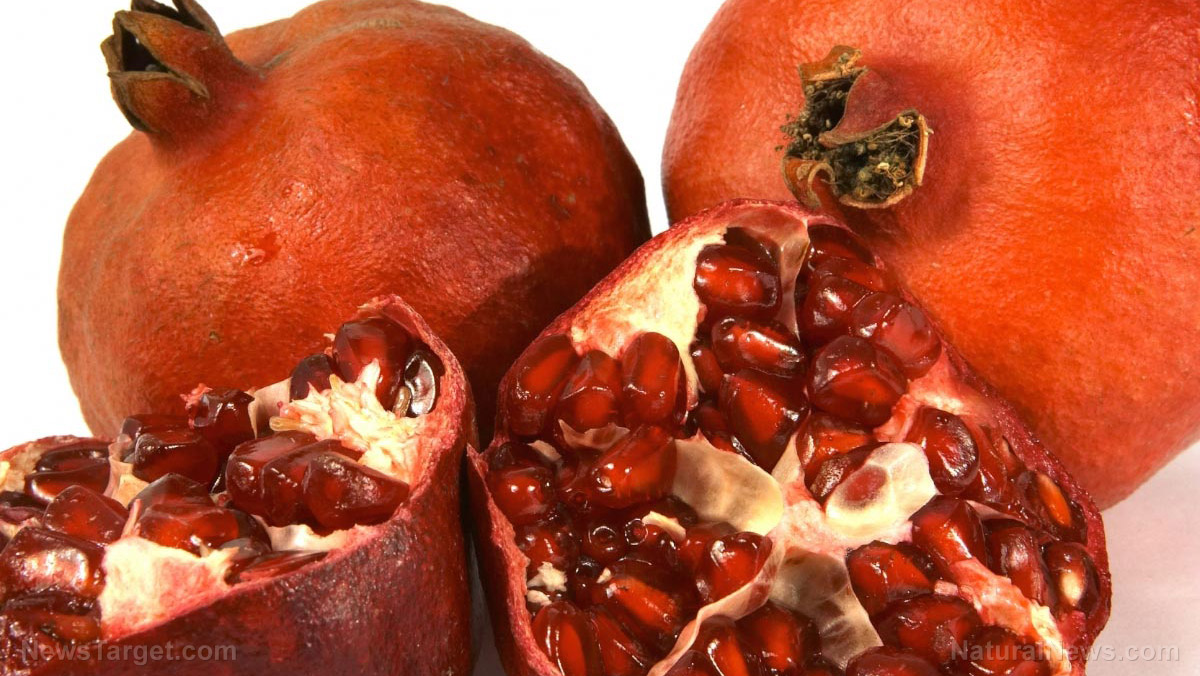Study: Cinnamon compound boosts metabolic health and helps fight obesity
06/14/2022 / By Zoey Sky

Cinnamon is a popular flavor for desserts and many fall- and winter-themed dishes and drinks. According to a study conducted by researchers from the University of Michigan (U-M) Life Sciences Institute (LSI), cinnamon also offers benefits when used to prevent obesity. The study was published in the journal Metabolism.
In earlier studies, researchers observed that cinnamaldehyde, an essential oil that gives cinnamon its flavor, can protect mice against obesity and hyperglycemia. But they didn’t fully understand the mechanisms underlying the effect.
Cinnamaldehyde and metabolism
For their study, researchers in the lab of Jun Wu, a research assistant professor at the LSI, set out to learn more about cinnamaldehyde’s action and confirm if it can also offer protective benefits for humans.
Wu explained that cinnamaldehyde has been reported to affect metabolism. This inspired her and her colleagues to find out how by learning about “what pathway might be involved, what it looked like in mice and what it looked like in human cells.”
The study results suggested that cinnamaldehyde boosts metabolic health by acting directly on adipocytes (fat cells), making them start burning energy via a process called thermogenesis.
The researchers tested human adipocytes from participants representing a range of ages, ethnicities and body mass indices. After treating the cells with cinnamaldehyde, the researchers observed the increased expression of several genes and enzymes that boost lipid metabolism.
Wu and her team also observed an increase in Ucp1 and Fgf21, which are important metabolic regulatory proteins involved in thermogenesis.

Adipocytes normally store energy in the form of lipids, which are a class of molecules in the body that include hormones, fats, oils and waxes. Lipids are essential to your overall well-being, but they can also contribute to disease.
This long-term storage was beneficial to distant ancestors, who had much less access to high-fat foods and a much greater need to store fat. Their bodies could then use the stored fat during times of scarcity or in cold temperatures, which induce adipocytes to convert stored energy into heat.
Energy surplus and the obesity epidemic
According to Wu, “energy surplus” has only recently become a problem. “Throughout evolution, the opposite – energy deficiency – has been the problem. So any energy-consuming process usually turns off the moment the body doesn’t need it,” she added.
To address the rising obesity epidemic, researchers like Wu have been looking for effective ways to prompt fat cells to activate thermogenesis and turn those fat-burning processes back on.
Wu thinks that cinnamaldehyde may offer one such activation method. And since it is commonly used in the food industry, it could be easier to convince patients to follow a cinnamon-based treatment than a traditional drug regimen.
Many people generally enjoy cinnamon. If it can also protect against obesity, “it may offer an approach to metabolic health that is easier for patients to adhere to,” said Wu.
However, this doesn’t mean you can enjoy all the cinnamon-based treats and beverages you want to without gaining weight. Wu warned further study is needed to determine how best to harness cinnamaldehyde’s metabolic benefits without causing any negative side effects.
Incorporate cinnamon into a balanced diet
Cinnamon is a spice made from the inner bark of Cinnamomum trees. The spice has been used as far back as ancient Egypt.
It was also considered so rare and valuable at the time that it was often considered a gift fit for kings. But these days, cinnamon is cheap and readily available in supermarkets.
There are two main types of cinnamon. Ceylon cinnamon is considered “true” cinnamon, while Cassia cinnamon is considered the more common variety. This is what you may already have in your spice rack at home. (Related: Health benefits of cinnamon: What’s the difference between Ceylon and cassia cinnamon?)
Cinnamon is made by cutting the stems of cinnamon trees. The inner bark is extracted and the woody parts are removed. Once the woody parts are dry, they turn into strips that curl into rolls or cinnamon sticks. These sticks can be ground into cinnamon powder.
The unique smell and flavor of cinnamon are due to the oily part, which is full of cinnamaldehyde.
When buying cinnamon, look for Ceylon cinnamon since the Cassia variety contains large amounts of coumarin, which is believed to be harmful in large doses. While all cinnamon offers health benefits, Cassia may cause problems when consumed in large quantities due to its coumarin content.
There are many ways to incorporate cinnamon into your diet, but to enjoy its health benefits you should look for healthy recipes that don’t use too much sugar and other unhealthy ingredients.
According to the U-M study, incorporating cinnamon into a balanced diet can help with weight loss. If you’re trying to lose weight, replace the sugar in your daily cup of coffee with a dash of cinnamon.
Watch this video to know more health benefits of cinnamon.
This video is from the Natural News channel on Brighteon.com.
More related stories:
Cinnamon: the blood sugar stabilizer.
Medicinal benefits of cinnamon.
The healing potential of cinnamon.
Cinnamon is a potent anti-cancer agent.
Sources include:
Submit a correction >>
Tagged Under:
cinnamaldehyde, cinnamon, fat burning, fight obesity, food is medicine, food science, functional food, natural health, natural ingredients, phytonutrients, research, slender, weight loss
This article may contain statements that reflect the opinion of the author




















